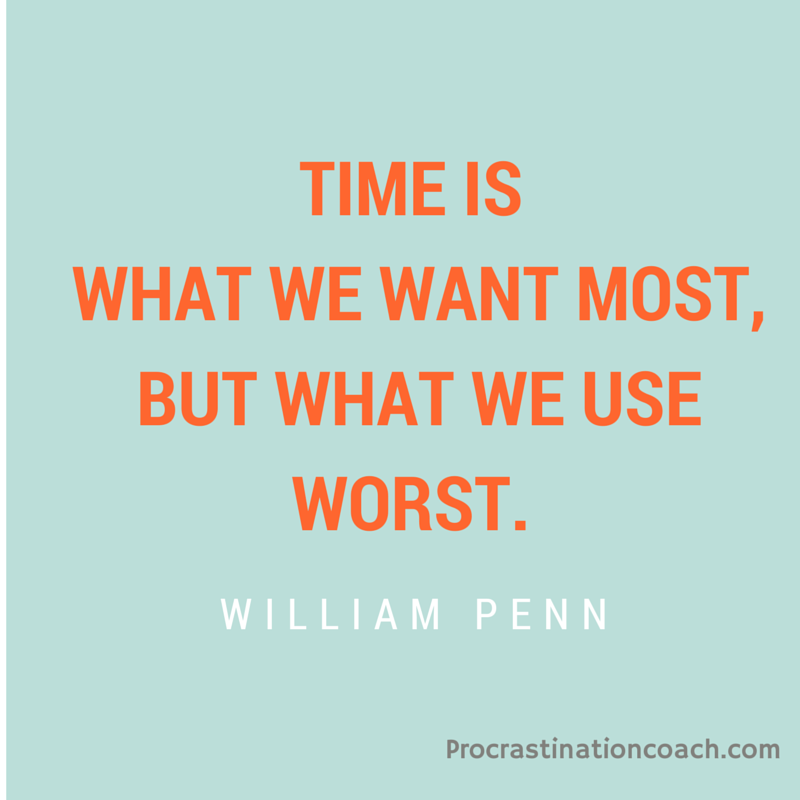 One of the most useful techniques I have ever learned to beat Procrastination is to find time where it might otherwise have been lost. Over the years, I have been amazed at the power this one technique has.
One of the most useful techniques I have ever learned to beat Procrastination is to find time where it might otherwise have been lost. Over the years, I have been amazed at the power this one technique has.

- travel time on the train, subway, or in your car
- moments waiting before your medical or therapy appointment
- early morning quiet moments when the rest of your roommates are still asleep
- the time you might spend waiting for laundry or a load of dishes to be done
- late Friday nights
- early Sunday morning
- the last moments of your lunch break, after you've eaten
For me, learning to spot unused blocks of time, even if they were only 5 minutes long, was critical in my journey away from Procrastination. This was true because I had been capable of wasting whole days of time, not just blocks of time during the course of a single day.
When I made it a habit to snatch little bits of time for better use, I not only was more productive, but I learned I could move smoothly and quickly into different activities. I didn't have to hem and haw and wonder as much as I had been prone to in the past. Come to think of it, my entire blog would not have been possible if I had not learned and used the Swiss cheese technique, because free time over the course of the week tends to be limited and not available in big chunks. Many of the blog posts I've written have been pieced together over several days, over several periods of brief, but focused and mostly speedy work.
More recently, I have been able to use my free blocks of time to learn new material through listening to audiobooks and podcasts. If you haven't tried these formats, I would encourage you to try one or both. Learning through audiobooks and podcasts feels pretty effortless, and who doesn't like that kind of feeling?
Of course, the Swiss cheese method does not have to be used for productivity only. It may just as well be used for periods of quiet calm or meditation, or simply a mindful break between more major activities or jobs.
Here's one more Swiss cheese trick — hidden beneath your bouts of worrying are lots of pockets and chunks of usable time. The next time you find yourself locked in worry, mark what you are worried about and then carve out a time block to be used more productively than by stressing out. It's kind of a win-win. You don't have to abandon or forget why you're worrying, and you get to work on fixing that stress at the same time.
Finding time involves being more diligent about tracking the passing of time and ridding yourself of the anxiety that typically comes when we have to start a new task. When you learn to find pockets of time and to use them well, you also learn the freedom that comes from moving freely and smoothly throughout your day.
Are there any pockets of time you've been able to grab? Do you have specific techniques to recognize them or to feel comfortable being productive in them? Please feel free to share your ideas with us here.

